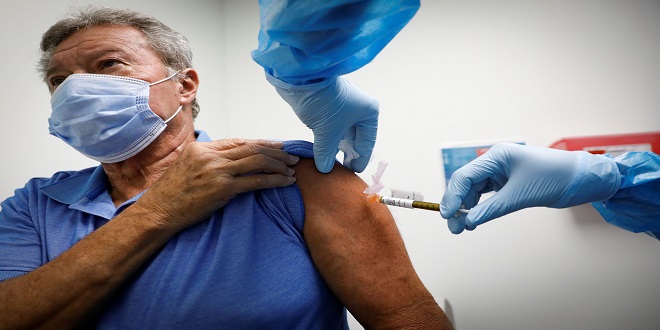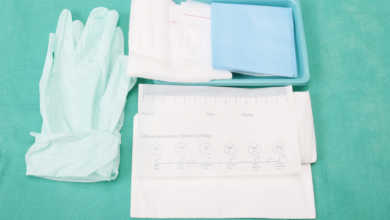What are the symptoms for COVID-19? Research Updates

The most recent research updates on COVID-19 symptoms
While the pandemic caused havoc in people’s lives, what was really inspiring was to see researchers from around the globe come up with new ways to help them beat COVID-19. Despite the chaos, researchers keep their cool and update people about the latest COVID symptoms. COVID Symptoms’ smartphone-based app has been downloaded millions of time, mainly in the United Kingdom and United States.
We know what to do in different situations during the pandemic because of them. They tirelessly work to improve treatment options to eliminate the disease. The latest discoveries and observations are being shared with the public.
We have some new updates regarding COVID symptoms.
1. If treated with care, the youngest COVID-19 patients will most likely avoid serious illness
Children younger than three years old who are infected by COVID-19 will experience mild to moderate symptoms. With supportive care, they usually recover quickly. These babies are still developing their immune systems and should not be contacted by caregivers or anyone else. As compared to older infants or young children, tiny patients are more susceptible to the virus.
2. Coronavirus infection may be prevented by aging
Progeria, a disease of premature aging, is thought to link with this enzyme. This enzyme can protect against viruses such as SARS-COV-2 which causes COVID-19. The laboratory of Susan Michaelis discovered this enzyme, membrane-associated zinc metalloprotease (ZMPSTE24). She has been studying enzymes and the effects they have on lamin A for many decades.
3. Dialysis patients at greater risk for coronavirus infection
SARS-COV-2 virus is rapidly spreading to residents of nursing homes and long term care facilities. This is causing a large number of deaths in very vulnerable populations.
Johns Hopkins Medicine researchers have found that patients who receive haemodialysis for chronic kidney disease may be more at risk of the pandemic virus.
4. Third COVID slot for immunocompromised Americans (13 August 2021).
The Centers for Disease Control and Prevention states that people with severely compromised immune systems should receive the third dose of vaccine. The CDC Director stated that “This official CDC recommendation – which follows FDA’s decision to amend emergency use authorizations for the vaccines – is an important step to ensure everyone can get as much protection from COVID-19 vaccination.” The Food and Drug Administration decided to allow people with immunocompromised to receive additional shots. They left the decision up to the CDC as to who should get the extra doses. Feel free to visit to know more about – health tips
5. Dr Scott Gottlieb suggests that Coronavirus could be an endemic.
CNBC’s Dr Scott Gottlieb stated that the virus could become an epidemic after the recent spike in delta cases. He also said, “Hopefully, we’ll have it or come on the opposite side sometime in November. And we won’t experience a huge surge of infection after that on the side of the delta wave.”
The CDC recommended booster shots from its Advisory Committee on Immunization Practices after a unanimous vote.
With the support of World Health Organization, the Smithsonian Science Education Centre launches a new COVID-19 guide for youth (21 May 2020).
The youth aged 8-17 years old have a new rapid-response resource. This guide is based upon the UN Sustainable Development Goals. Understanding COVID-19’s science and social science is essential for young people. It will be easier for them to take the right steps for others when they are able to understand the symptoms and the reasons why they occur.
A set of seven student-led tasks will be offered. Participants will also be able to answer questions that their peers have already asked.
Further activities, research and quotes from scientists and public health officials will be included in the guide.
6. Vaccines can reduce the severity of symptoms caused by the virus.
People who contact COVID-19 even after they have been vaccinated will still experience milder symptoms. This research was done in the USA by mRNA preventives. COVID vaccines have been shown to be very effective in preventing infection. You will not get the virus if you have been vaccinated. This is about 90% of the cases. Despite the fact that you may get the virus, you will have fewer viruses.
7. Study shows that diarrhoea and vomiting can be COVID symptoms
You should not take symptoms like diarrhoea and vomiting lightly as they could also be signs of COVID-19. SMS Hospital doctors recently found that some patients had gastrointestinal manifestations, but no signs of respiratory problems.
According to the study “Hepatic and gastrointestinal manifestations of COVID-19”, patients may visit gastroenterologists when they have diarrhoea or vomiting. These at-risk patients should be tested with gas by doctors.
8. Is Vitamins Supplement Really Effective in COVID Prevention?
It might seem that vitamins and supplements can help us keep our immune system healthy. Although many people took it to fight the pandemics, that may not have been a wise decision.
Vitamin D is essential for our immune system. But, will supplements really help us get rid of COVID-19
Dr.ChristinaMenni states that multivitamins and vitamin D, as well as omega-3 and probiotic supplements, had a modest protective effect on the risk of getting tested positive for the virus. “In contrast, we found no protective effect for other supplements like vitamin D, vitamin D, omega-3, and probiotics.
When she broke down her results by gender, she noticed an interesting pattern. Here’s what she found: “Multivitamins, vitamins D, omega 3 and probiotic supplements modestly protected women, but not consistently for men. This was an unexpected result.
It will not do you any good to spend your money on supplements in the hopes of learning more about COVID-19. Instead, eat a varied diet of fresh fruits and vegetables to maintain a healthy lifestyle.
9. Who are the most likely to suffer from COVID for a long time?
The latest data from the COVID Symptom Study app, ZOE shows that one in twenty people will likely suffer from COVID 19 symptoms. The symptoms can last for up to 8 weeks. While this can occur in anyone, older people are more likely to develop COVID. This condition affects approximately 10% of those aged 18 to 49 who have had COVID-19. It can also affect 22% of people over 70. Longer COVID can also be influenced by weight. Asthma sufferers are more likely to have long COVID-19.
SUMMING-UP,
To keep people informed of the latest findings, researchers are continuously studying the virus. They want to make sure that everyone has all the necessary information so they can take appropriate actions. They are constantly working to end this pandemic so we can return to normal living.
The Canuckle Game celebrates Canada. Players guess words related to Canadian culture. Topics include hockey, maple syrup, and famous landmarks. Red and white colors are used for the game’s design. The game aims to teach and entertain about Canada.




